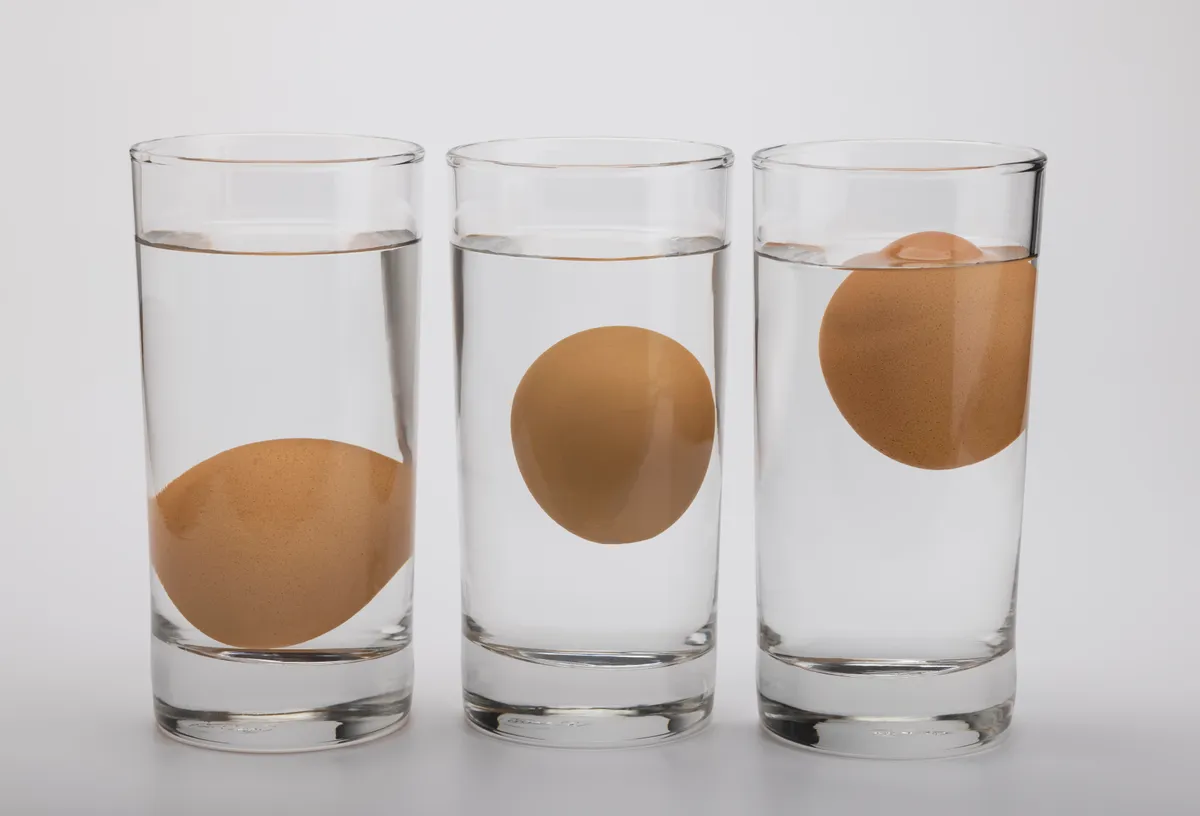With the current sticker shock with the price of eggs, there’s been a growing interest in understanding how to preserve them for as long as possible. If you’ve ever found yourself scrolling through social media debates about whether eggs can be safely left on the counter or how long they really last in the fridge, you’re not alone. Let’s dive into everything you need to know about egg shelf life, proper storage, and how to make the most of this kitchen essential.
Eggs and Salmonella
The Washing Process
Egg storage practices vary widely across the globe due to differences in processing and food safety regulations. Why the difference? It all boils down to how bacteria like Salmonella are managed.
In the U.S. and a few other countries, eggs are required to be refrigerated, while in places like Europe and South America, eggs are often stored at room temperature.
United States
In the U.S. regulations mandate that commercially sold eggs must be washed to remove any potential contaminants. While this process is effective at reducing surface bacteria, it also strips away the egg’s natural protective cuticle – a thin layer that acts as a barrier against bacteria. When this barrier is removed, eggs are more susceptible to contamination and require refrigeration to slow bacterial growth. Once an egg has been refrigerated, it must remain refrigerated to prevent spoilage.
Other Countries
In contrast, many other countries do not wash eggs, preserving the protective cuticle and allowing eggs to be stored safely at room temperature. These countries often rely on widespread Salmonella vaccination programs for hens to reduce contamination risk.
Washed eggs (like those sold in the U.S.) require refrigeration, while unwashed eggs (common in Europe and South America) can often be stored at room temperature. However, refrigeration can still extend the shelf life of any egg, whether washed or unwashed.
How Long Do Eggs Last?
The United States Department of Agriculture (USDA) states that fresh, raw eggs in their shells last 3 to 5 weeks beyond the “sell by” date when properly stored in the refrigerator. The “sell by” date is a guide for retailers, not an expiration date.
Factors Affecting Egg Freshness:
Temperature: Consistent refrigeration at 40°F (4°C) or below is crucial. Fluctuating temperatures accelerate spoilage.
Shell Integrity: Cracked or damaged shells compromise the egg’s protection, making them vulnerable to bacteria. Always discard cracked eggs.
Proper Storage: Keep eggs in their original carton to prevent moisture loss and avoid absorbing odors from other foods.
How to Tell If an Egg Is Still Fresh
Use your God give senses of SIGHT, SMELL and TASTE. Here are some visual and olfactory cues to help you determine if an egg is still safe to eat:
The Float Test
The float test is a simple and effective way to determine an egg’s freshness.
Fill a bowl with cold water and gently place the egg inside.
Fresh eggs sink and lie flat because they’re dense, with minimal air inside. The water test works because older eggs float due to their larger air cell, which develops as air seeps through the porous shell and replaces lost moisture and carbon dioxide. While a floater indicates an older egg, it doesn’t necessarily mean it’s spoiled. The whites may have thinned from dehydration, but the yolks are often still fine.
The Smell Test
A more reliable method to determine if an egg is spoiled is to crack them open and smell them. A rotten egg has a distinct, unpleasant sulfurous odor. Fresh eggs should have little to no smell. If an egg smells bad, toss it in the garbage.
The Visual Test
Crack the egg onto a plate. A fresh egg will have a firm yolk and a thick white. A spoiled egg may have a flat yolk and a watery white. If there’s unusual coloring, such as a pink, green or iridescent hue in the egg white or yolk – this a clear indication off bacterial contamination.
Tips for Extending Egg Freshness
Tips for extending egg freshness:
- Keep Them Refrigerated: Always store eggs in the refrigerator at a consistent temperature of 40°F (4°C) or below. This slows bacterial growth and preserves quality.
- Use the Original Carton: Store eggs in their original carton. The carton prevents moisture loss, protects the eggs from physical damage, and minimizes odor absorption from other foods in the fridge.
- Store in the Coldest Part of the Fridge: Avoid storing eggs in the refrigerator door, as temperature fluctuations are more frequent there. The main body of the refrigerator is typically colder and more consistent.
- Don’t Wash Before Storing (If Unwashed): If you have unwashed eggs (common in some countries), do not wash them before storing. Washing removes the natural protective cuticle, making them more susceptible to bacteria.
- Check the “Sell By” Date: Use the “sell by” or “best by” date on the carton as a guideline for freshness. Remember, eggs are often still good for 3-5 weeks beyond this date when properly refrigerated.
- Handle with Care: Avoid rough handling that could crack the shells. Cracked eggs are more vulnerable to bacterial contamination and should be discarded.
- Trust Your Senses: The most reliable way to determine if an egg is spoiled is by its smell. A rotten egg has a distinct, unpleasant odor. Also, check for any abnormalities in the egg’s appearance.
- Cooked Eggs Have Shorter Shelf Lives: Cooked eggs (hard-boiled, scrambled, etc.) should be refrigerated within two hours of cooking and consumed within 3-4 days.
Can I freeze eggs?
You can! Just crack them out of their shells first. Whisk yolks and whites together, or freeze them separately. According to the USDA, egg whites freeze beautifully and whip up into perfect meringues after thawing. Yolks, however, get thick and syrupy, making them less ideal for blending. To avoid this, mix four yolks with a pinch of salt or 1.5 teaspoons of sugar or corn syrup before freezing. Frozen eggs, whites, or yolks will maintain their best quality for up to a year. Cooked eggs can be frozen, but their texture won’t be as good.”
Final Thoughts
With proper storage and a little common sense, you can confidently enjoy eggs for weeks after purchase. Use the “sell by” date as a guideline, and rely on your senses to determine freshness. By following these tips, you can minimize waste, save money, and enjoy eggs safely! Please let us know your thoughts and tips in the comments below.


Did I just read an entire article on how long eggs will last in the fridge only to discover it doesn’t answer that question? And, in fact, pretty much just says “check the sell-by date”.